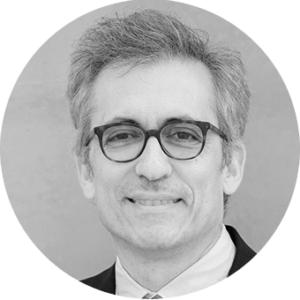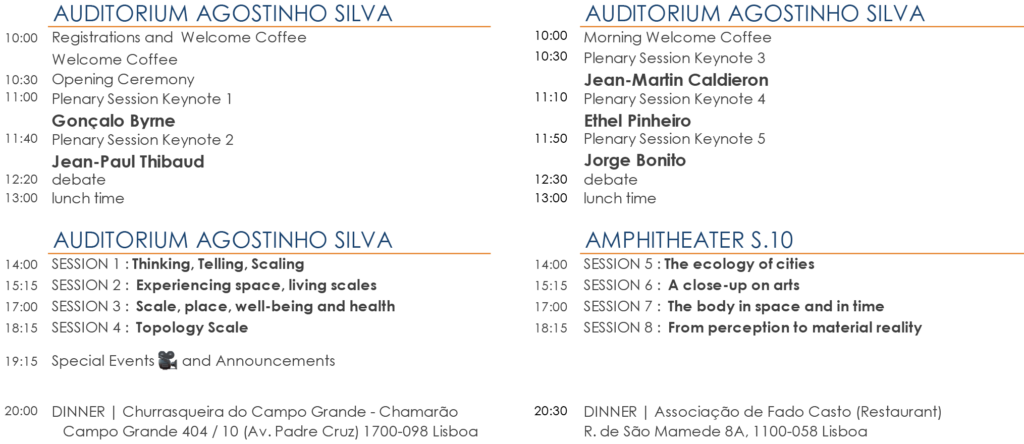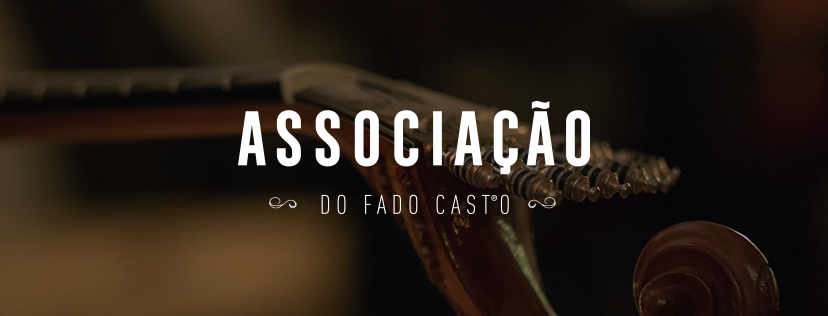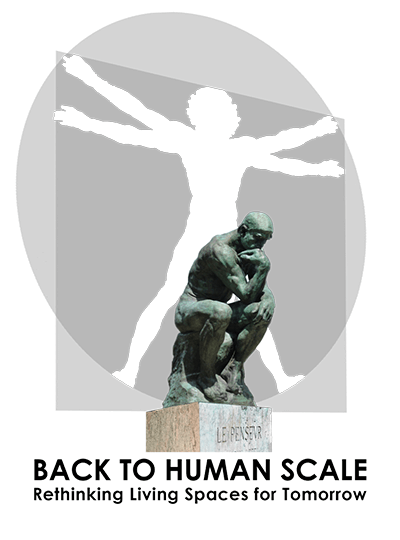Keynotes & Schedule
 Gonçalo Byrne
Gonçalo Byrne
Gonçalo Byrne is graduated in Architecture at the Lisbon School of Fine Arts in 1968.
Author of a vast work, several times awarded at national and international level, his production has shown particular importance in the patrimonial and cultural spheres. Its vast curriculum includes dozens of works, in Portugal and abroad, including housing, urban renewal, urban facilities, laboratories and universities.
Full professor, invited in Portugal and abroad, he received in 2005 the Honoris Causa Doctorate from the Faculty of Architecture of the Technical University of Lisbon.
On June 26, 2020, he was elected president of the Ordem dos Arquitectos.
Re-thinking architecture, from crisis to opportunity
Climate change is challenging humankind into a sort of a “new renaissance” deeper than the 15th / 16thcentury, mainly European past phenomena.
Revealing a high degree of vulnerability and uncertainty about our planet’s survival, urgency requires dramatic transformations from carbonic to a post-carbonic civilization.
The crisis is almost known, as well as most of the way-out on this short-medium-long term transition although environmental, social, economic and political empowerment are dramatically hesitating.
Architecture as a form of knowledge and a profession is eventually well positioned to be part of this transition.
Re-thinking its role in this ambitious, wide-opening, human life centered process will be its challenge.
As part of the anthropization process, architecture as an artifact, will have to go basis to re-shape its effect on the “common-house” into the “common shared ground”.
Lisbon, Lusófona University, AGOSTINHO SILVA AUDITORIUM | November 24th Thursday, 11:00

Jean-Paul Thibaud
Sociologist and urban planner, is senior researcher at CNRS. Researcher at Cresson (Research Center on Sonic Space and the Urban Environment, UMR1563 Ambiances Architecturales et Urbaines). His field of research covers the theory of urban ambiances, ordinary perception in urban environment, social anthropology of sound, sensory ethnography of public places. He has directed the CRESSON research laboratory and is currently the co-director of the International Ambiances Network (www.ambiances.net).
Jean-Paul Thibaud has published numerous papers on urban ambiances and has co-edited various books on this field of research.
The Ecological Issues of Sensitivity
This conference deals with the close intertwining of ecology and sensitivity. It questions the way sensitivity is at the heart of current socio-ecological issues. A basic hypothesis will be developed, that of the emergence of a new form of sensitivity that could be called «ambient sensitivity». It is a sensitivity that could be qualified as ecological and which is irreducible to an artistic, environmental or landscape sensitivity. One could perhaps rather speak about eco-sensitivity in this respect. We will see that this form of sensitivity relies on the notion of ambiance, that it operates a new distribution of the sensible and summons an original structure of feeling.
Lisbon, Lusófona University, AGOSTINHO SILVA AUDITORIUM | November 24th Thursday, 11:40
 Jean Caldieron
Jean Caldieron
Jean Martin Caldieron is an Associate Professor at Florida Atlantic University. He received his Ph.D. in Engineering from Tohoku University in Japan. He previously studied at the ENSAG (France), where he specialized in the use of raw earth as a building material. He received his Architect Diploma at Simon Bolivar University (Caracas, Venezuela) and worked in several firms prior to establishing his own practice where he designed residential and urban projects. He practiced for three years as an architect in Japan, and he has been involved in several projects around the world. His research interests are the up-grading of self-built urban settlements, shanty town dynamics, and remote sensing. Dr. Caldieron is a passionate traveler who has been researching, lecturing, and traveling in more than 150 countries
Human Scale in Urban settlements
According to the United Nations, it is estimated that more than one billion people currently live in slums or informal settlements worldwide. Informal settlements are the only path for the urban poor to have a roof over their head and are a solution rather than a problem. While some informal settlements are prone to poor sanitation, pandemics, and natural disasters, many of them are improved after some time, becoming an example of adequate design and appropriate human scale. This result in some cases in an alignment with sustainability principles by saving resources and energy, using recycling materials, and using vernacular techniques. The case studies here presented show how many informal settlements have very remarkable and interesting public and semi-public areas with a more human scale than neighborhoods designed by professionals. When informal settlements are self-build they can be sustainable and they have design qualities that allow a high residential satis- faction among their inhabitants.
Lisbon, Lusófona University, AGOSTINHO SILVA AUDITORIUM | November 25th Friday, 10:30
 Ethel Pinheiro
Ethel Pinheiro
Ethel Pinheiro is Head of the Postgraduate Program in Architecture of the Federal University of Rio de Janeiro / Universidade Federal do Rio de Janeiro (2020-2024) and National Researcher of FAPERJ (State sponsoring Institution/Brazil). She is Architect and Urban Planner, Associate Professor of the Faculty of Architecture and Urbanism/UFRJ. PhD in Architecture (UFRJ), MSc. in Architectural Theory (UFRJ) and graduated in Architecture and Urbanism from UFRJ with Magna Cum Laude. She works as Chief Editor of the Journal CADERNOS PROARQ (since 2012) and Ad hoc reviewer for national and international funding agencies, in addition to being a member of diverse Scientific Committees of indexed Journals. She has also accumulated prizes in Architecture and Urbanism competitions, having dedicated years of professional experience in set design. Topics of interest: urban environment, urban design, memory, perception of the environment, contemporary city and culture.
Urban fictions and sensitive concretism. Bodies, Cities and Ambiances.
In this lecture, the body as a receptacle for promoting systemic interactions provided by the environment, will be brought to the forefront in the sensitive practice of the urban experience. Such an experience converges to the spaces of daily use, concrete spaces in which only human interactions can give new meaning, taking into consideration that spaces are only understood by their emerging value, that is, by the collective and dyna- mic character that ambiances promote. If the instance of private life today plagues large cities, and further evidences the construction of fear and segregation, in part promoted by the results of the new Pandemic, on the other hand, the need for public and collec- tive life can be placed as a possibility for rescuing the human dimension, envisioned by projects and ideas from Situationist theories (reverberated in the 1960s) and former studies on Phenomenology and the realm of Atmospheres. These topics have been issued by architecture and urbanism transversally to human geography, anthropology and urban sociology. Urban fictions are presented, therefore, as bodily narrative creations that make it possible to re-create spaces, reiterating the need to act in the city as daily builders.
Lisbon, Lusófona University, AGOSTINHO SILVA AUDITORIUM | November 25th Friday, 11:10
 Jorge Bonito
Jorge Bonito
Architect and urban planner, Jorge Bonito Santos has a wide experience in architectural policies. He has contributed to the realization of the National Policy for Architecture and Landscape of Portugal, the National Housing Strategy for 2015-2031 and the Urban Rehabilitation Area – Coimbra ALTA | Urban Rehabilitation Strategy for the Uptown of the City of Coimbra, receiving several prizes for his works. He has worked for Moita and Lisbon municipalities, as Head of Division, in the areas of Architecture, Urban Management, Urban Planning, Urban Rehabilitation and Public Space, and also as Project Manager for the Business and Projects Development Department of Parque EXPO in Portugal.
Back to the Future*
The character of a city reflects the way in which citizens, from all generations and social classes, use their public space. Culture, traditions, uses and customs, but also the way in which its streets, squares and gardens are used, reveal the city.
The human dimension of the city, the importance of the public as a structuring and aggre- gating element, respect for people, its main users, and the recognition of its urban func- tions, as a meeting point, place of commerce and connection space, are decisive to build a city for all, ensuring the right to civic action and social dignity.
Today, there is a growing understanding that the public space supports urban life, as the matrix of city construction and citizenship.
Investing in the quality of public space – by ensuring that it is well designed and well built – reinforces social cohesion and quality of life, attracts investment, and generates economic returns for the city.
Today the challenge is to rethink the city for it to become more sustainable, cohesive, and inclusive.
* after the movie by Robert Zemeckis (1985)
Lisbon, Lusófona University, AGOSTINHO SILVA AUDITORIUM | November 25th Friday, 11:50
Full Schedule Here
NEXT >>
Avenida do Campo Grande,
376 1749-024 Lisboa, Portugal
Tel.: 217 515 500 | email: info@ulusofona.ptPorto
Rua Augusto Rosa,
Nº 24, 4000-098 Porto - Portugal
Tel.: 222 073 230 | email: info@ulusofona.pt












